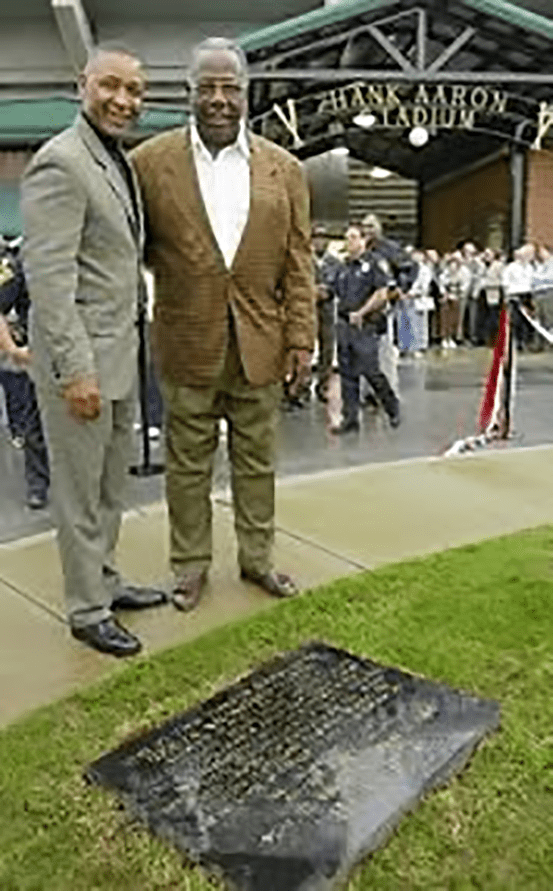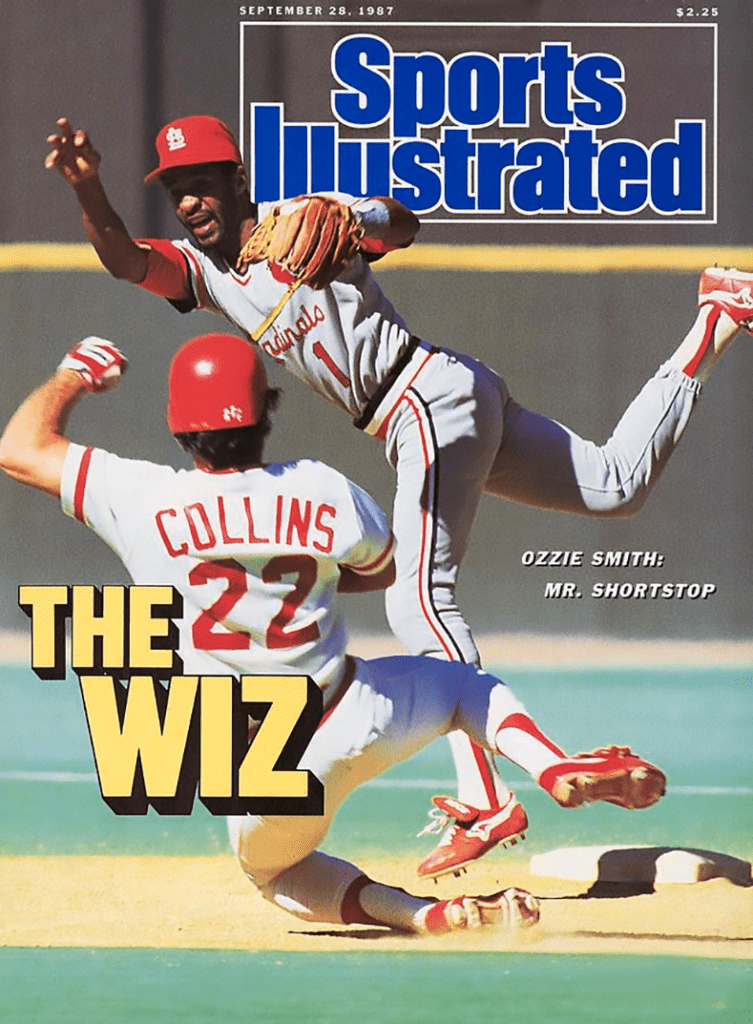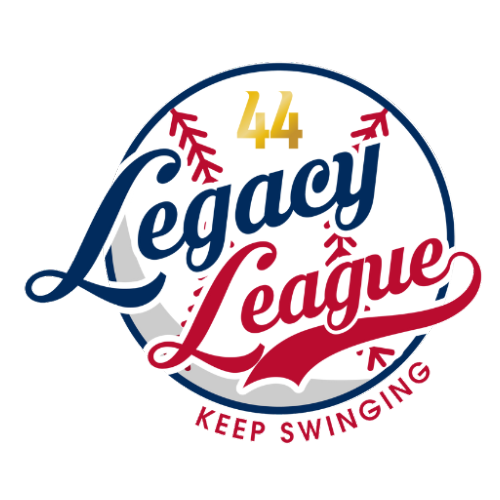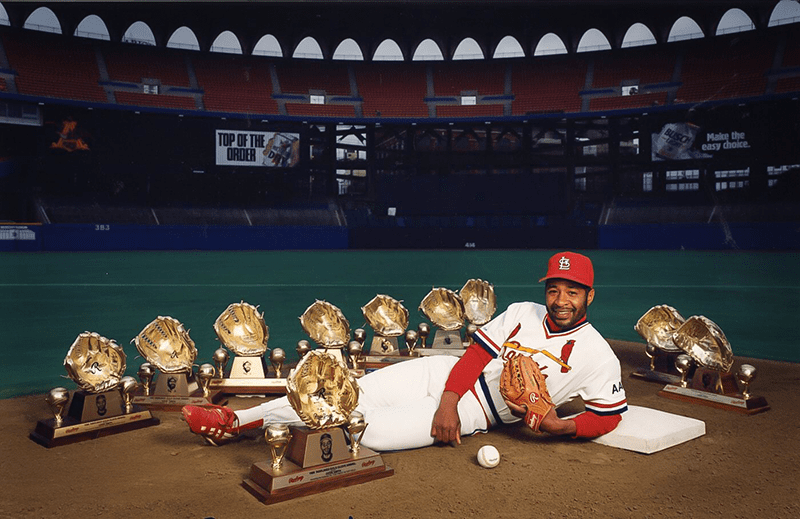On the day the Baseball Writers Association of America was set to announce the Hall of Fame class of 2002, Ozzie Smith had a backup plan ready.
If the phone rang with the news that he had not been inducted in his first year of eligibility, Smith and his family were all set to drive to Steak ‘n Shake and begin looking forward to next year. Instead, Smith and his family opened a bottle of champagne they had been saving for just such an occasion.
“I had gone over it a thousand times in my mind the way it would come about,” Smith said. “The only thing I miscalculated was the degree of emotion you get when you do get that phone call. I didn’t know how much this was going to touch me. The tears … they just come.”
The call from Jack O’Connell, secretary-treasurer of the Baseball Writers Association of America, came before noon.
“I had butterflies,” Smith said. “In knowing you had a chance to (be elected) on the first time, it’s important. It has more significance going in on the first ballot than having to wait two or three years.”
O’Connell informed Smith that not only had he received 433 of a possible 472 votes (91.7%), but he was the only player on that year’s ballot to receive the 75% necessary for induction.
“He said, ‘It’s 92% and you’re the only one going in,” Smith said. “Right away, I started thinking, ‘Oh Lord, that means I have to talk longer.’”
Smith became just the 37th player in baseball history to be inducted in the Hall of Fame in his first year of eligibility, joining fellow Cardinals Stan Musial, Bob Gibson, and Lou Brock.
“It’s appropriate that Ozzie is going on a solo excursion into the Baseball Hall of Fame,” wrote St. Louis Post-Dispatch columnist Bernie Miklasz. “He’s always had to do it by himself because so many people counted him out as he made his way along the Yellow Brick Road on the way to Cooperstown. And Smith’s relentless, Wizard-against-the-world spirit made this brilliant career possible.”
That brilliant, 19-year career included 15 all-star games, 13 Gold Gloves, one Silver Slugger Award, and the 1985 NLCS MVP Award. A .231 hitter in his first four major-league seasons with the Padres, Smith worked to improve as an offensive player even after establishing himself as one of the most dynamic defensive players in the game.

“There’s one guy who I hope one day has the opportunity to stand before you and also say that he’s a Hall of Famer, and that’s Whitey Herzog,” said Smith (Herzog was inducted into the Hall of Fame in 2010). “He came to San Diego one day and said to me, ‘If you come to play for the St. Louis Cardinals, we’re going to win the World Series.’ That man can tell the future.”
Smith retired with 2,460 hits, including 1,944 with the Cardinals, and a .262 career batting average. Though he hit just 28 regular-season homers in 19 seasons, that didn’t include the lone postseason home run of his career – a game-winning shot in Game 5 of the 1985 NLCS against Tom Niedenfeur and the Dodgers.
“That was a defining moment,” Smith said. “Of all the great plays that I made, that was the one thing that made people stand up and take notice that I was much more than just a defensive player. I didn’t like the moniker of being a one-dimensional player. There was no reason for me, being as good a defensive player as I was, not to be a better offensive player.”
Of course, Smith’s Hall of Fame election was fueled primarily by the strength of his defense. In addition to his incredible range and flair for jaw-dropping plays, Smith was a steady presence on the left side of the infield. He led the National League in fielding percentage eight times and retired with a .978 fielding percentage.
“Ozzie’s great plays stand out in your mind, but what stands out to me is that he didn’t mess up the routine plays,” said second baseman Tom Herr, Smith’s double-play partner from 1982 until 1988. “He made all of those. His attention to detail, his pregame preparation, and the focus he always had on the field. He never took for granted his skills as a defensive player. I don’t think there will be another one like him. The Hall of Fame is for special players, and he fits into that category.”

Jack Clark, who won two National League pennants in the three seasons he played with Smith, said that he did not doubt that Smith deserved to be a first-ballot Hall of Famer.
“I say every player should have the opportunity to be Ozzie Smith’s teammate,” Clark said. “Then you’d really find out how great this game can be – and more.”
“You never saw the same thing twice,” he added. “Every day, on ground balls or pop-ups or whatever, you had to pay attention because you could be looking at something you’d never see again. And to be on the same team, on the same field, wearing the same uniform, going for the same goal as him – that was really special.”
The Cardinals won the 1982 World Series in Smith’s first season in St. Louis, then reached the World Series in 1985 and 1987. The 1987 season was Smith’s best offensive campaign, as he hit .303 with 104 runs scored, 75 RBIs, and 43 stolen bases. That season, he finished second in the National League MVP voting and won a Silver Slugger Award to go along with his Gold Glove.
“That was a very impressive team Whitey put together and Ozzie was the anchor,” Clark said. “No one is bigger than the game, but Ozzie was about as close as you could get on those teams.”
For Willie McGee, Smith’s on-field performance was only surpassed by all he did off it. When McGee was called up to the majors in 1982, Smith invited the 23-year-old outfielder to live with him in St. Louis.




